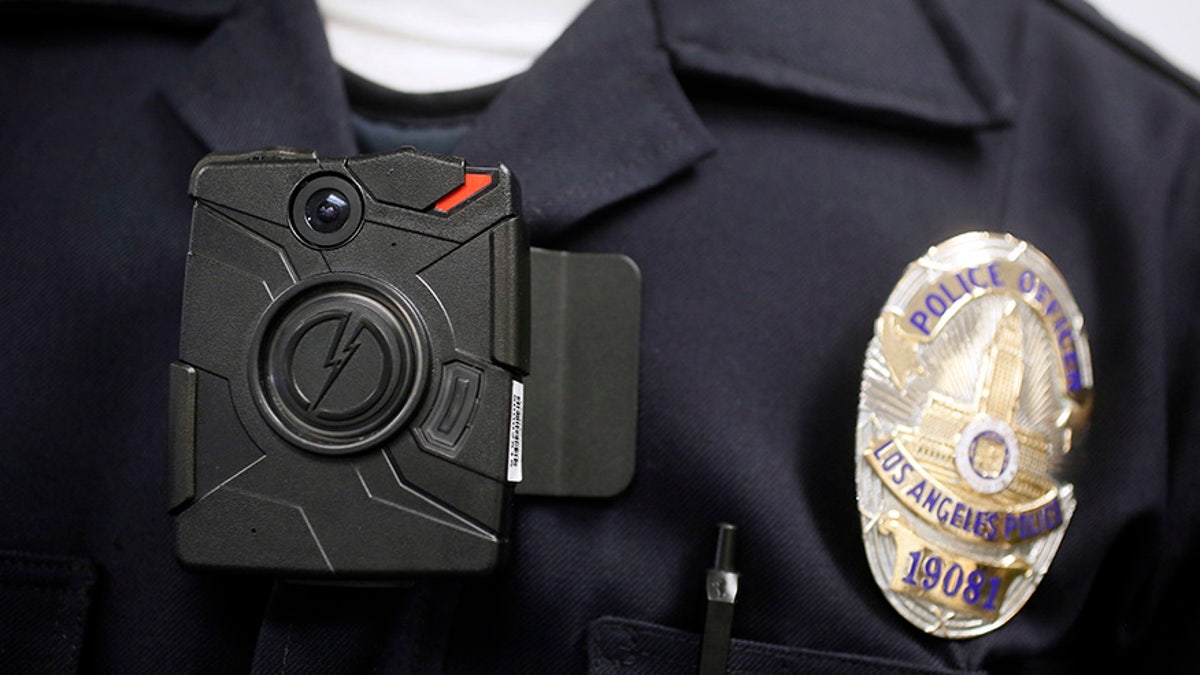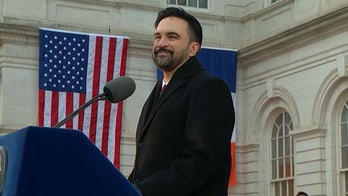
A Los Angeles police officer demonstrates the use of a body camera, Jan. 15, 2014. (Associated Press)
Prompted in part by high-profile complaints about police use of force, the U.S. government in recent years has allocated tens of millions of taxpayer dollars for body cameras for state and local police departments – and those states and municipalities have invested millions of their own dollars as well.
But a study released Friday reveals that body cameras have little to no effect on police behavior. Officers wearing the devices act similarly to those who don’t, the study concludes.
And there is no significant difference in citizen complaints about camera-wearing officers versus those without cameras, the study says.
“Evidence of their effectiveness is limited,” researchers David Yokum, Anita Ravishankar and Alexander Coppock conclude about the cameras in their report, titled, “Evaluating the Effects of Police Body-Worn Cameras.”
The study tracked more than 2,000 Washington, D.C., police officers – half with cameras, half without – for 18 months. The research team then tallied their use-of-force situations, civilian complaints against them, etc., and examined whether cameras affected the results.
But every measure showed the differences to be insignificant.
“The results call into question whether police departments should even be adopting body-worn cameras, especially given their high cost,” Harlan Yu, a consultant with Upturn, a Washington nonprofit that examines technology’s effect on society, told the New York Times. Yu’s group was not involved in the study, the Times says.
"The results call into question whether police departments should even be adopting body-worn cameras, especially given their high cost."
Police departments investing in body cameras “should not expect dramatic reductions in the use-of-force complaints, or other large-scale shifts in police behavior solely from the deployment of this technology,” study director Yokum, of The Lab @DC, told the Washington Post.
“So if you are a police department thinking that this technology on its own is going to be something to cause big shifts on those two dynamics, this would be a cause to recalibrate your expectations,” Yokum said.
Washington, D.C., police Chief Peter Newsham told the Times he was surprised by the results because he was expecting the use of cameras to at least have an impact on those officers “who might be more inclined to misbehave.”
If the cameras have any value at all, the chief told the Post, it’s likely to be in helping clarify details of controversial cases – such as whether a suspect is armed or not when officers arrive at a crime scene.
Sgt. Matthew Mahl, chairman of the D.C. police labor union, told the Post that he too expected the study’s conclusions to be different.
“I honestly thought that complaints would have come down,” Mahl told the newspaper. “We’re spending all this money to realize that everything is the same. Maybe that’s a good thing, that we’ve been doing things right from the beginning.”
























